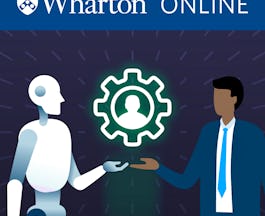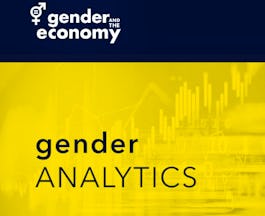Filter by
The language used throughout the course, in both instruction and assessments.
548 results for "hr analytics"

University of Minnesota
Skills you'll gain: Human Resources, Recruitment, Human Resources Operations, Leadership and Management, Planning, Strategy, Strategy and Operations

University of Pennsylvania
Skills you'll gain: Leadership and Management, Machine Learning, People Management, Algorithms, Applied Machine Learning, Human Resources, Machine Learning Algorithms, People Analysis, Decision Making

University of Toronto
Skills you'll gain: Research and Design, Critical Thinking, Organizational Development, People Analysis, Business Analysis, Decision Making, Data Analysis, Emotional Intelligence, Leadership and Management, People Development, Strategy and Operations, Business Psychology, Communication, Data Management, Human Resources, Leadership Development, Problem Solving, Strategy, User Experience Design, Change Management, General Statistics, Human Computer Interaction, Innovation, Probability & Statistics, Statistical Analysis, User Experience, Creativity, Market Research
 Status: Free
Status: FreeStanford University
Skills you'll gain: General Statistics, Probability & Statistics, Statistical Analysis, Critical Thinking, Basic Descriptive Statistics, Data Analysis, Statistical Tests, Probability Distribution, Problem Solving, Statistical Visualization

Skills you'll gain: Project Management, Strategy and Operations, Leadership and Management, Communication, Business Communication, Collaboration, Agile Software Development, Software Engineering, Entrepreneurship, Scrum (Software Development), Planning, Supply Chain and Logistics, Change Management, Finance, Organizational Development, Product Management, Risk Management, Budget Management, Influencing, Culture, Emotional Intelligence, People Management, Problem Solving, Procurement
 Status: Free
Status: FreeThe State University of New York
Skills you'll gain: Probability & Statistics, General Statistics, Correlation And Dependence, R Programming, Statistical Analysis, Data Analysis, Forecasting, Statistical Visualization, Statistical Programming, Plot (Graphics)

Google
Skills you'll gain: Agile Software Development, Software Engineering, Project Management, Scrum (Software Development), Strategy and Operations, Collaboration, Leadership and Management, Communication, Entrepreneurship, Product Management, Influencing, Problem Solving
 Status: Free
Status: FreeUniversity of London
Skills you'll gain: Human Resources, Leadership and Management, People Management, Conflict Management, Decision Making, Human Resources Operations, People Analysis, Performance Management, Recruitment, Business Analysis, Employee Relations, Leadership Development, Organizational Development, People Development

Northeastern University
Skills you'll gain: Data Analysis, Data Management

Skills you'll gain: Employee Relations, Performance Management

University of Washington
Skills you'll gain: Business Communication, Communication, Leadership and Management, Planning, Negotiation, Writing, People Management, Professional Development, Business Intelligence, Strategy, Business Development, Decision Making, Organizational Development, Project Management, Public Relations, People Analysis, Customer Relationship Management, Basic Descriptive Statistics, Data Analysis, Human Resources, Visualization (Computer Graphics), Data Visualization, Regulations and Compliance, Statistical Analysis

University of California, Irvine
Skills you'll gain: Human Resources, Leadership and Management, Planning, Recruitment, Strategy, Talent Management, Human Resources Operations, People Analysis, People Development, Strategy and Operations
Searches related to hr analytics
In summary, here are 10 of our most popular hr analytics courses
- Recruiting, Hiring, and Onboarding Employees: University of Minnesota
- AI Applications in People Management: University of Pennsylvania
- Gender Analytics: Gender Equity through Inclusive Design: University of Toronto
- Introduction to Statistics: Stanford University
- Google Project Management:: Google
- Practical Time Series Analysis: The State University of New York
- Agile Project Management: Google
- The Manager's Toolkit: A Practical Guide to Managing People at Work: University of London
- Healthcare Analytics Essentials: Northeastern University
- Employee Relations: HRCI










